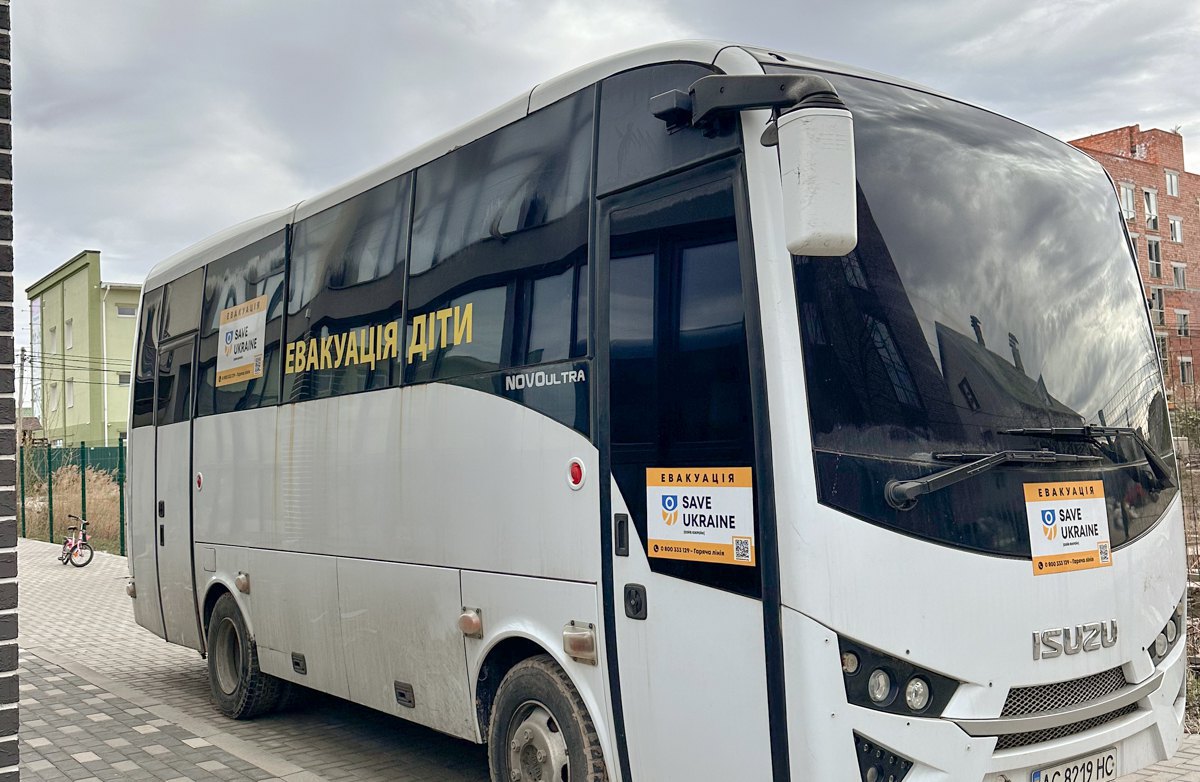
Kyiv Region. April 2025. I arrive at the address and realise that I have not made a mistake. The Save Ukraine stickers on a large evacuation bus parked near the rehabilitation centre and the office of this charity tell me so. It is here that a large team works to rescue Ukrainian children deported to Russia and organises the evacuation of families with children from the frontline Regions.
At the entrance, I was greeted by Marina Ostapenko, the press secretary of Save Ukraine founder Mykola Kuleba, who gave me a short tour of the modular town, where families with children rescued from the TOT are currently living.
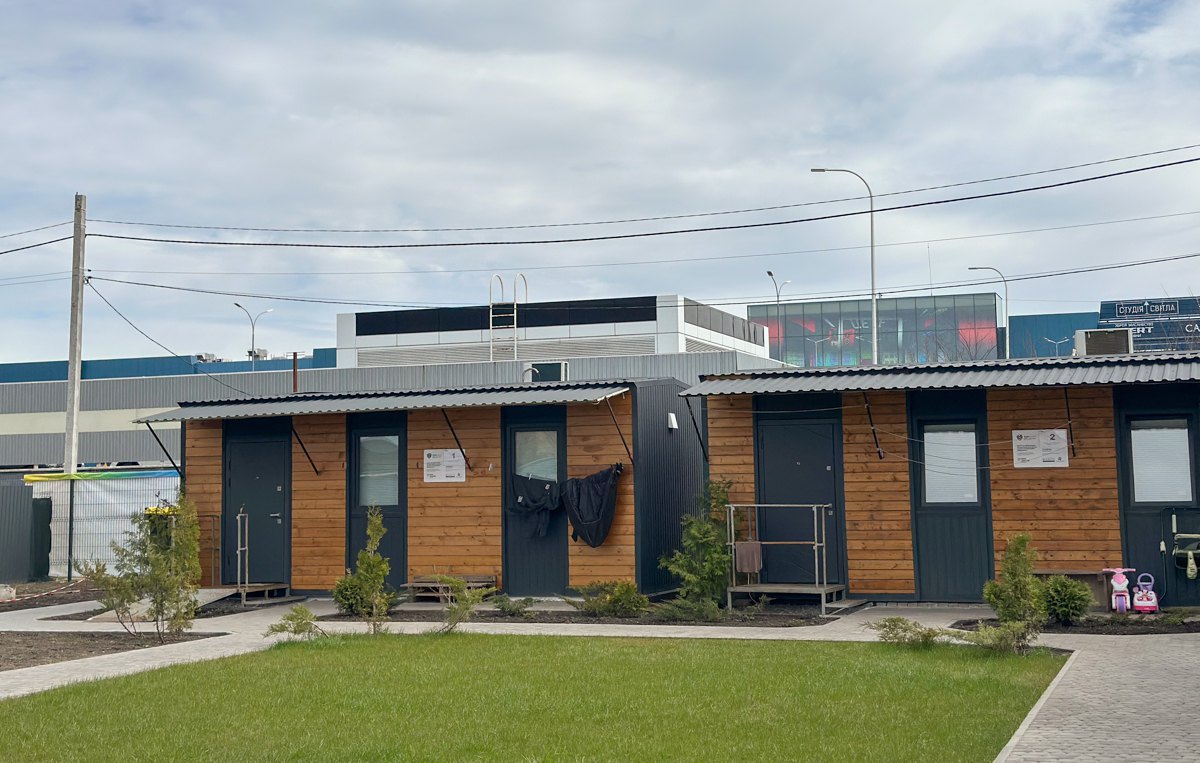
Marina knocked on one door. A man named Serhiy opened the door. His eight-year-old daughter was in an online lesson at the time.
Serhiy, as he likes to say, is a Crimean. He has been living in Kherson Region [the name of the settlement is withheld for security reasons] for about twenty years. All that is left of his life in Crimea is a house book and a technical passport for his parents’ house.
“The ‘new authorities’ sued me for my parental house in court, as I was not a Russian citizen and did not live there before or after the occupation of Crimea,” Serhiy began.
As a matter of principle, he did not take a Russian passport even after the complete occupation of the left-bank part of Kherson Region. The man understood that without Russian documents, he would not be able to get a job, receive social benefits, or send his daughter to school – and that such a decision would always lead to inspections by the occupation authorities. But he remained true to his principles.
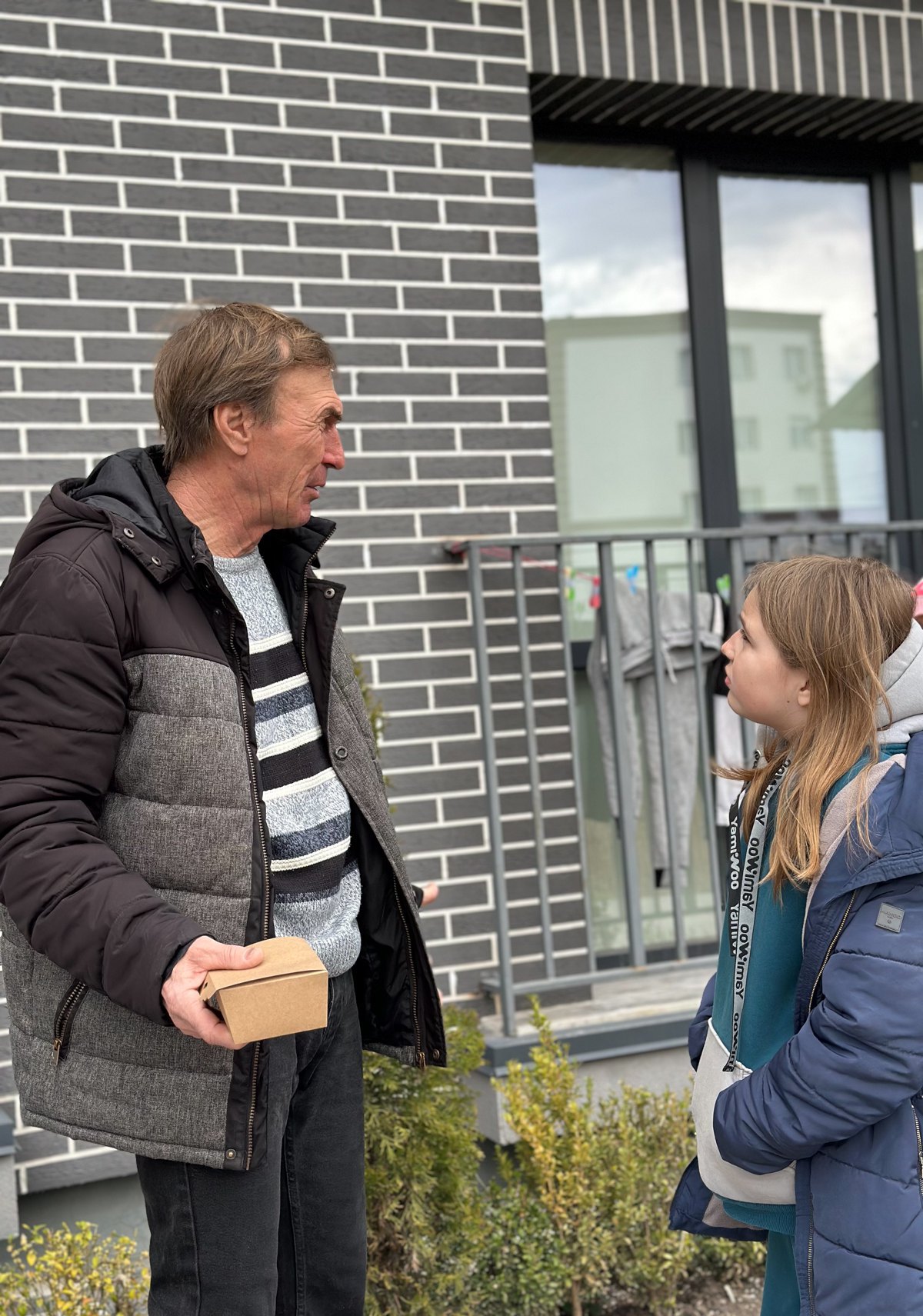
He lost his wife
Serhiy recalls that life in their village changed radically with the arrival of Russia.
His family felt it immediately, as Serhiy lost his wife in March 2022. “The Russians turned our hospital into a hospital where civilians were no longer treated. We couldn’t take her to another city because of her health condition and dozens of checkpoints controlled by the Russians. She died because she did not receive the necessary treatment and medical support,” the man says.
For some time, Violeta was not told about her mother’s death. At the time, the girl was only five years old. Both she and Serhiy took the loss of their closest person very hard. However, her father could not let his guard down. Serhiy said that at birth, Violeta was registered only with her mother because of family circumstances. Therefore, after her death in the occupied city, the man had to make extra efforts to obtain custody of the child under Ukrainian law.
“Since then, I’ve been hiding my daughter all the time because I was afraid she would be taken away from me. We only went for walks in the evening – because during the day everyone was at school, and a child playing in the street in the middle of the day could attract unnecessary attention,” he says.
Leaving their homes during the occupiers’ door-to-door raids
Since mid-summer 2022, the occupiers have been conducting quarterly rounds. As soon as a new rotation of Russian soldiers entered the settlement, searches and document checks began. And since the settlement where Serhiy lived was large, it took more than a day to filter through the checkpoints. Because of this, he already knew when they would come to his street.
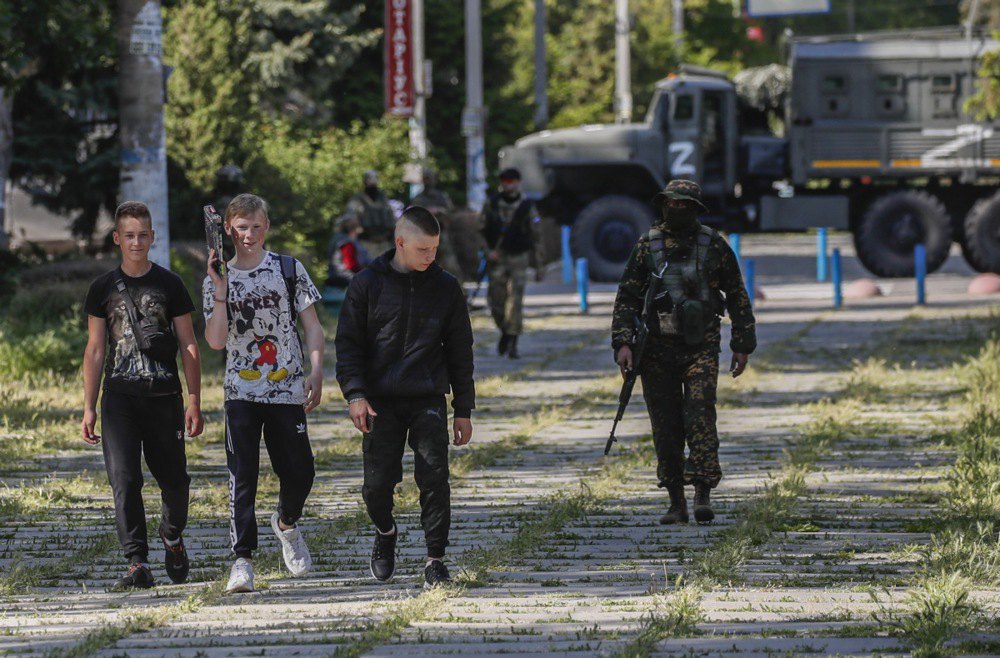
“I always pick up my daughter and go somewhere. Before doing so, I make sure to open all the drawers, put away the canned food and some things so that they don’t turn everything over in the house. During my entire stay in the occupied city, I was never subjected to these filtration measures,” the man says.
One day in early 2023, Serhiy resorted to a trick to get a document with a Russian seal.
“I talked to my neighbours, and they gave me their passport details, which confirmed my identity and that I really lived at the address. With that piece of paper, I went to their ‘administration’, where they stamped me. It saved me ten times during the occupation when they stopped me and checked my documents. I had only a Ukrainian passport and this document. When asked about my Russian passport, I said it was being made,” the man said.
Serhiy says he keeps in touch with some of his fellow villagers, and they have still not received Russian passports. Many of them moved to the centre of the village three years ago. They live like this: they only go to nearby shops, get medical treatment at home and work illegally.
Serhiy lived like this too. Since he had no Russian documents, he had to take up illegal work to provide for his daughter.
“There were those who immediately got a passport and went to work. The Russians had a very clever idea. For the first year and a half, those who went to work in their hospital were paid almost one hundred thousand roubles. Now it’s down to seventeen thousand. No one wants to work anymore. And Russia is not so beautiful now. They’re waiting for Ukraine to return,” says the IDP.
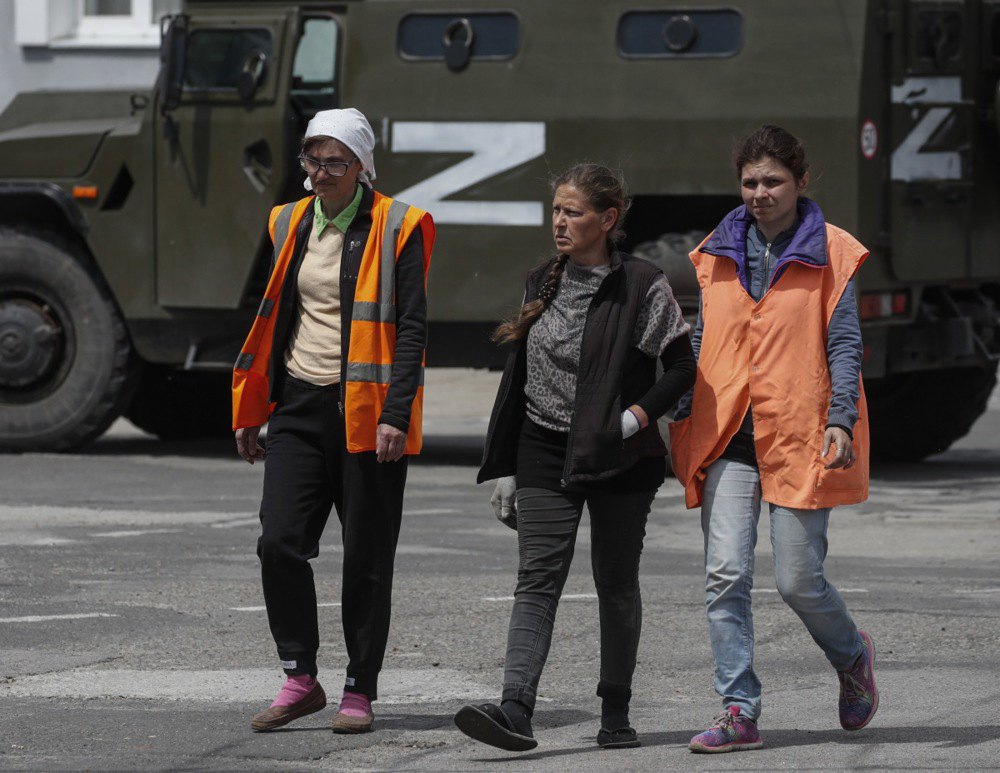
The invaders kept wounded Russian soldiers in the school – and set up a torture chamber for civilians in its basement
And this is not surprising, because even those who were waiting for the occupiers definitely did not receive the ‘Russian world’ they expected. It’s not just about salaries. It’s also about the security situation. The occupation authorities turned a peaceful settlement in Kherson Region into a militarised territory: for a long time, they hid wounded Russian soldiers who had lost their limbs there. According to Serhiy, they were not taken directly to Russia but were settled in different buildings – in a school, an administrative building in a park guarded by Chechens. The soldiers were not allowed to go anywhere and no one was allowed to visit them. Later, they were simply taken away in an unknown direction.
At the same time, civilians were interrogated and tortured in the basement of the same school. “There was a former soldier who lived on my street. Soldiers often came to pick him up and take him to this basement. He would recover for weeks. But as soon as the bruises would go away, they would come for him again. He told me that the Russians covered the basement completely with cellophane so they wouldn’t have to wash anything from the blood after torture,” Serhiy added.
As a result, almost half of the local residents fled their homes. However, the Russian military brought their families to replace them.
“They live there like locals. There are many women in burqas in the city. We’ve never seen them before. I don’t know if they are from among the local girls who married Caucasians or if they brought their own, but there are a lot of foreigners. A lot of foreigners,” he said.
They offered to establish Russian custody of the child
Serhiy would also have waited for the Ukrainian Armed Forces at home, if not for the “offer” from the occupation authorities to take custody of Violeta. According to him, they justified this by saying that with Russian documents, Violeta would be able to go to school.
“I was told that there was a woman who could do this, and that she already had six children under her care. I found out who she was, went there, talked to the neighbours – and they told me they had never seen her children. This so-called ‘guardian’ lives with a disabled Russian soldier. They’re drinking. And where are the children? Or were they taken somewhere in Russia, and she just gets money? I got scared and realised I had to leave immediately,” Serhiy said.
In addition, his neighbour – whose son-in-law is the head of the occupation administration – was talking to Serhiy more and more about this ‘guardianship’.
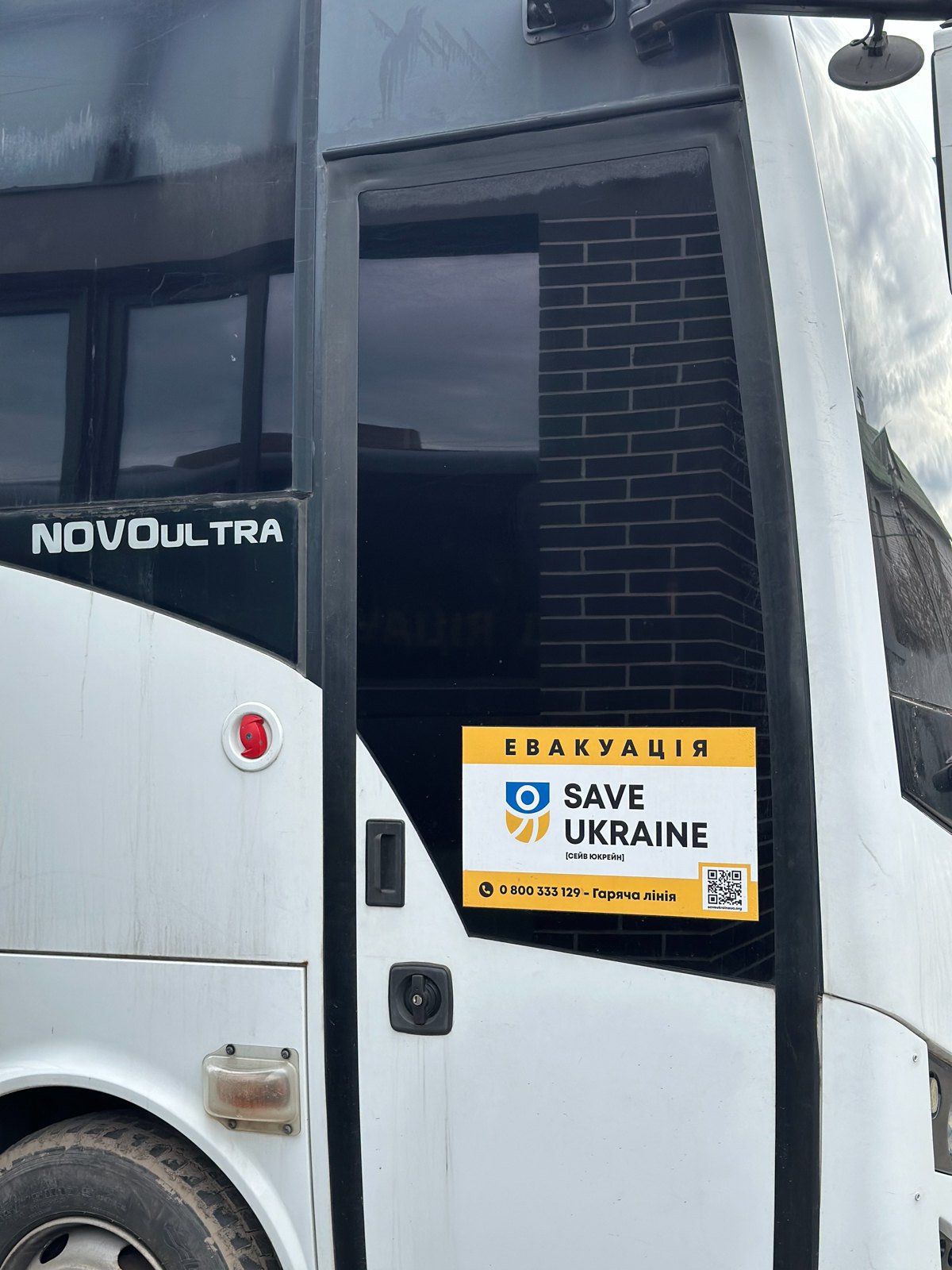
The man contacted Save Ukraine and asked for help with the evacuation. While this complicated process was being planned, he created the appearance of “intense activity” in the care of the girl to divert the attention of those who had their eyes on her.
“We left before the feast of Epiphany – 17 January 2025. The journey was not easy. At the Russian border, they did not want to let me through without Russian documents. They told me to go and look for them, because they didn’t believe that I had lived there for so long with a Ukrainian passport. It was probably that piece of paper with their stamp that saved me,” he recalls.
Other details of the evacuation cannot be disclosed for the safety of those Ukrainians who are still waiting to be rescued.
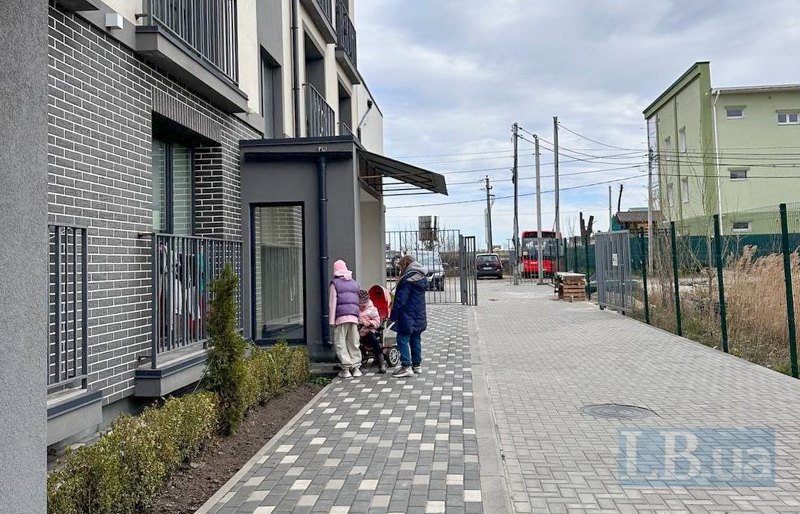
The girl misses home and catches up with her studies
The most important thing is that Serhiy and Violeta are now safe.
The girl misses her home very much – her cousins and her favourite red cat remain there.
“A friend who feeds the cat said that he hadn’t eaten for three days after we left. It was waiting for us,” said Serhiy.
The girl is now in the second grade at an online school. Serhiy says that it is not easy to study because Violeta has missed quite a lot of classes. But she is trying hard – and the new friends she’s made in the modular town are bringing her back to life.








